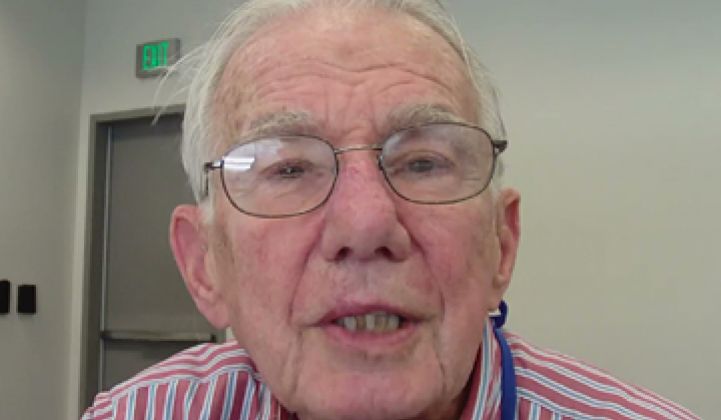Back in the 1970s, Art Rosenfeld, a physicist at Lawrence Berkeley Lab (and Enrico Fermi's last grad student), determined that the power consumption in California and the nation would someday outstrip our ability to produce it. He kicked off a massive effort to get the state to pass efficiency regulations. Appliance makers fought vigorously, but California passed appliance and building regulations (Title 20 and Title 24) anyway.
"They all claimed it was the [expletive] end of civilization as we knew it," he told me in 2006. "Autos were getting 14 miles a gallon. Energy efficiency wasn't part of the American ethic whatsoever."
The result? Per capita power consumption has remained relatively flat in California but nearly doubled in the rest of the country. The results can only partly be attributed to the "Rosenfeld Effect." Still, the impact has been huge. Modern refrigerators consume half or less the energy consumed by fridges back in the '70s, hold more food and cost less when adjusted for inflation. His work has likely been responsible for hundreds of billions in energy savings.
Back in the '70s, pilot lights consumed close to 10 percent of the energy in homes. Electronic ignition has capped that waste.
Since then, Rosenfeld has served as an California Energy Commissioner and become a leading thinker in efficiency, mentoring figures such as Energy Secretary Steve Chu and Arun Majumjdar, the UC Berkeley professor that manages ARPA-E. Lawrence Berkeley Lab also remains one of the primary centers for efficiency research. Rosenfeld is now in his 80s, but is still publishing papers. He was one of the easiest choices for the Greentech Hall of Fame.
We sat down with him recently at the Emerging Technologies Summit in Sacramento for a series of videos (thanks to Jonathan Livingston for setting it up). The first segment is on homes, appliances and policy. Later segments will focus on white roofs and technology.



